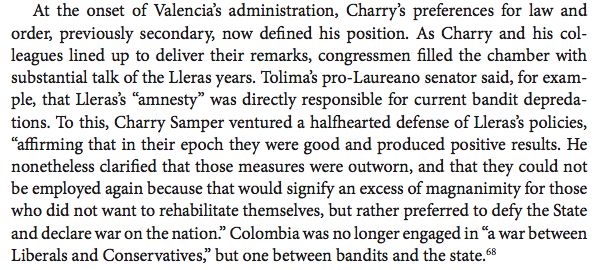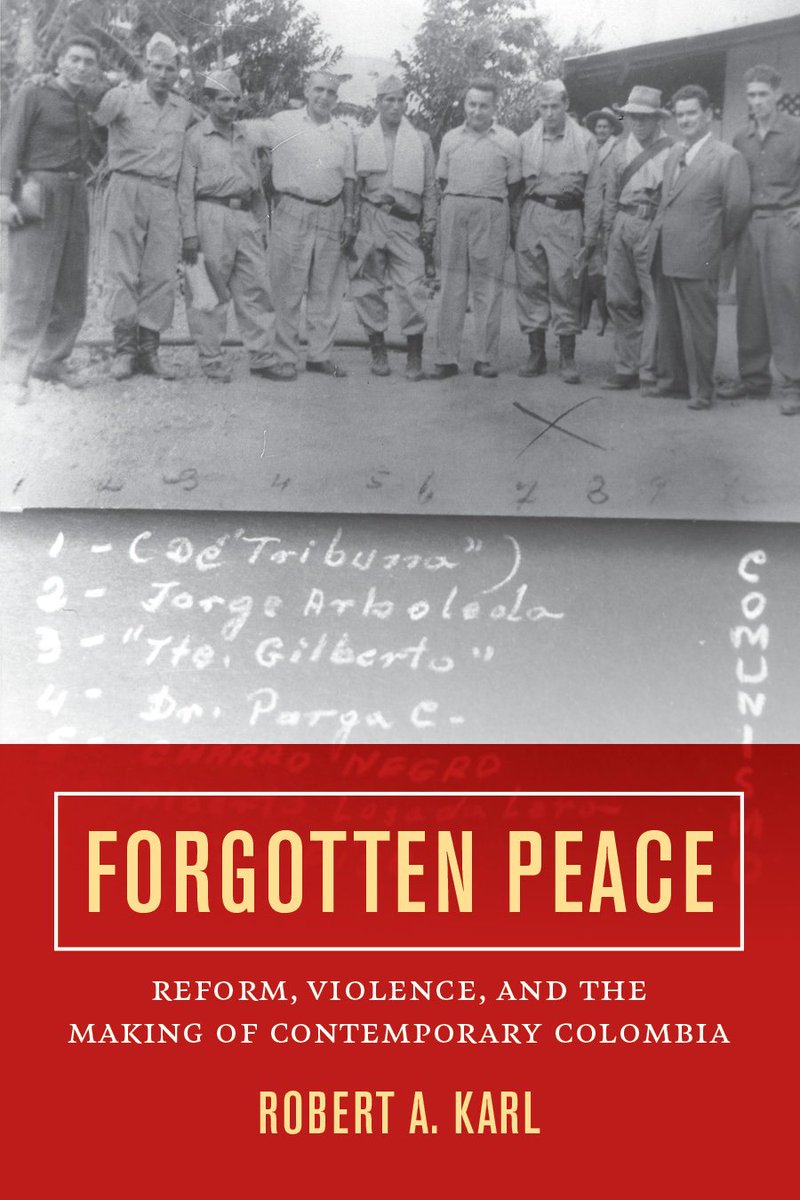
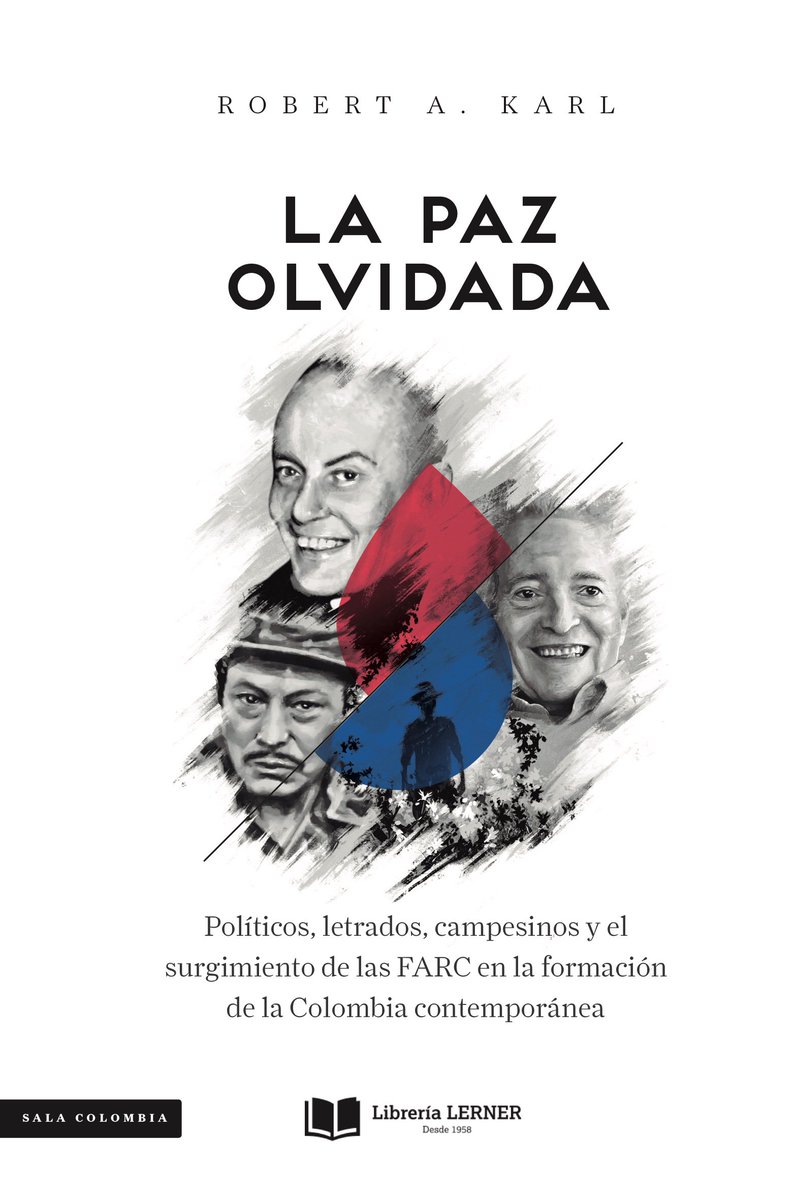
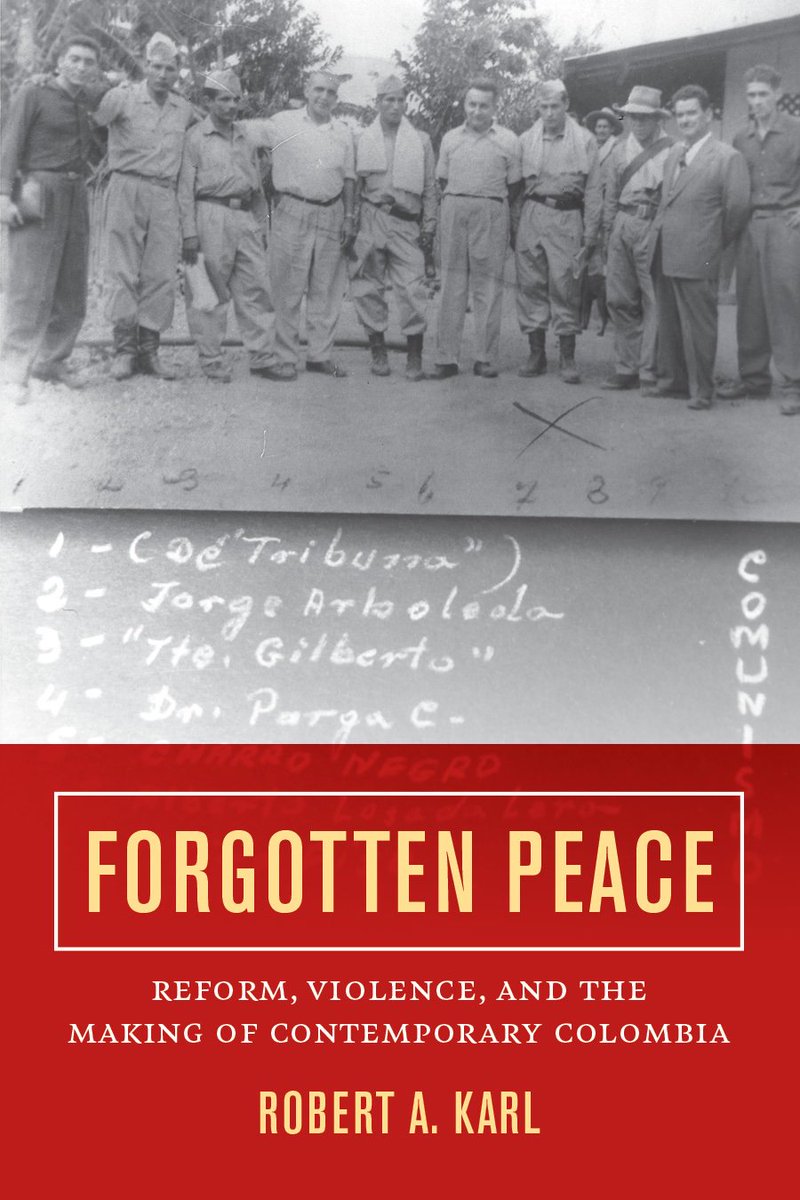
In any case, window for consolidating peace so, so narrow 16/
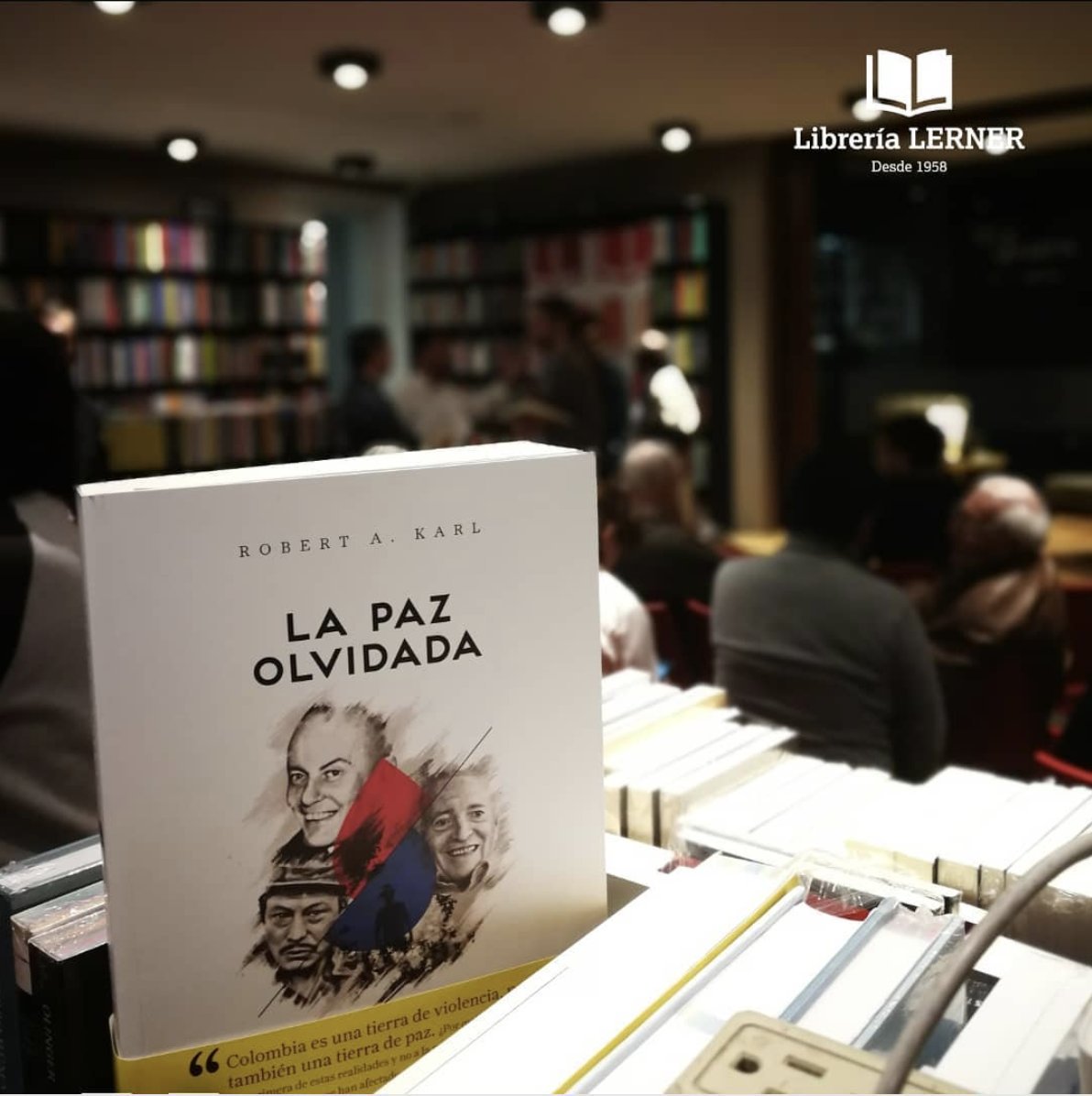
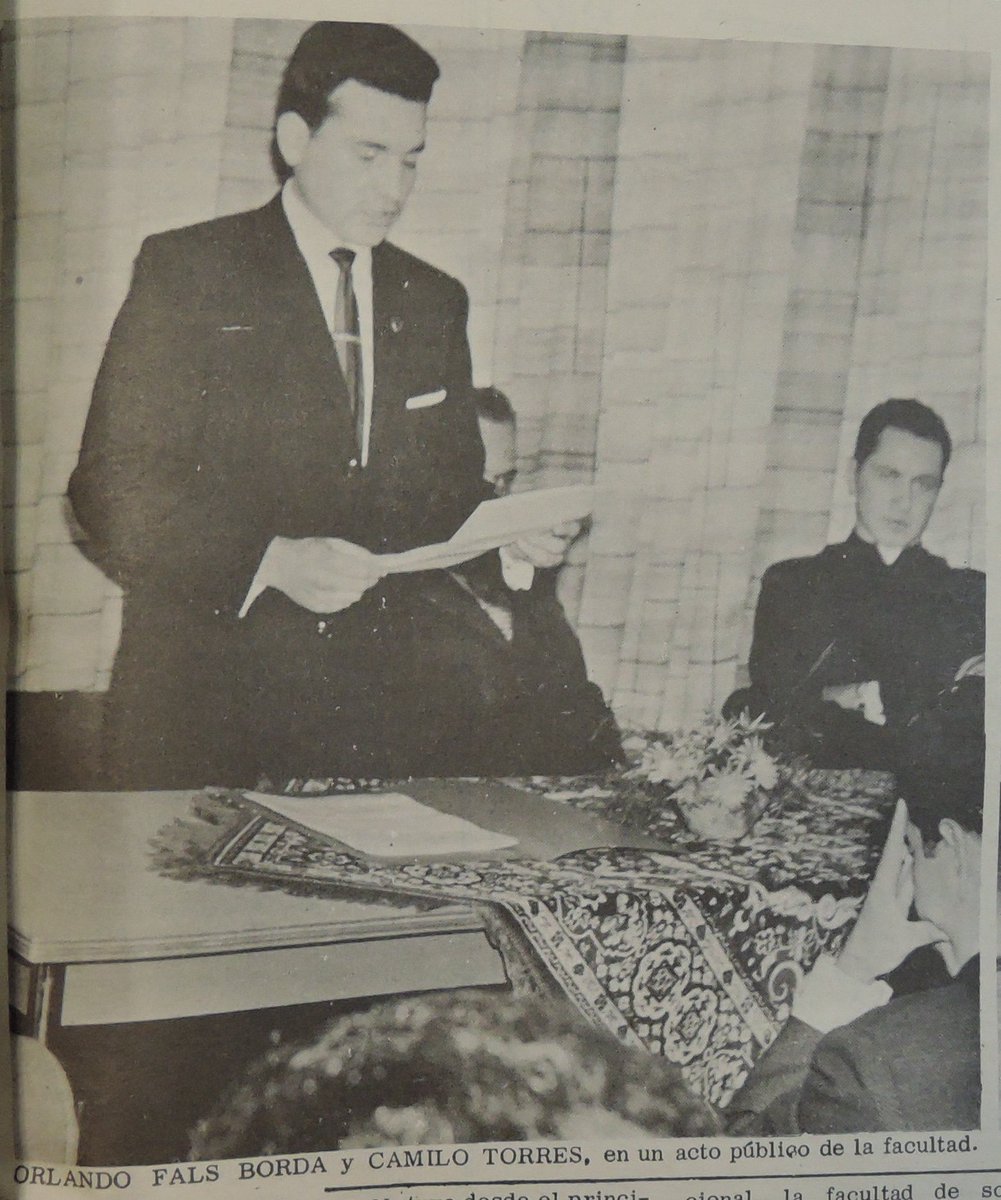
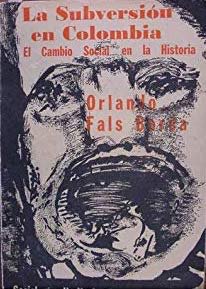
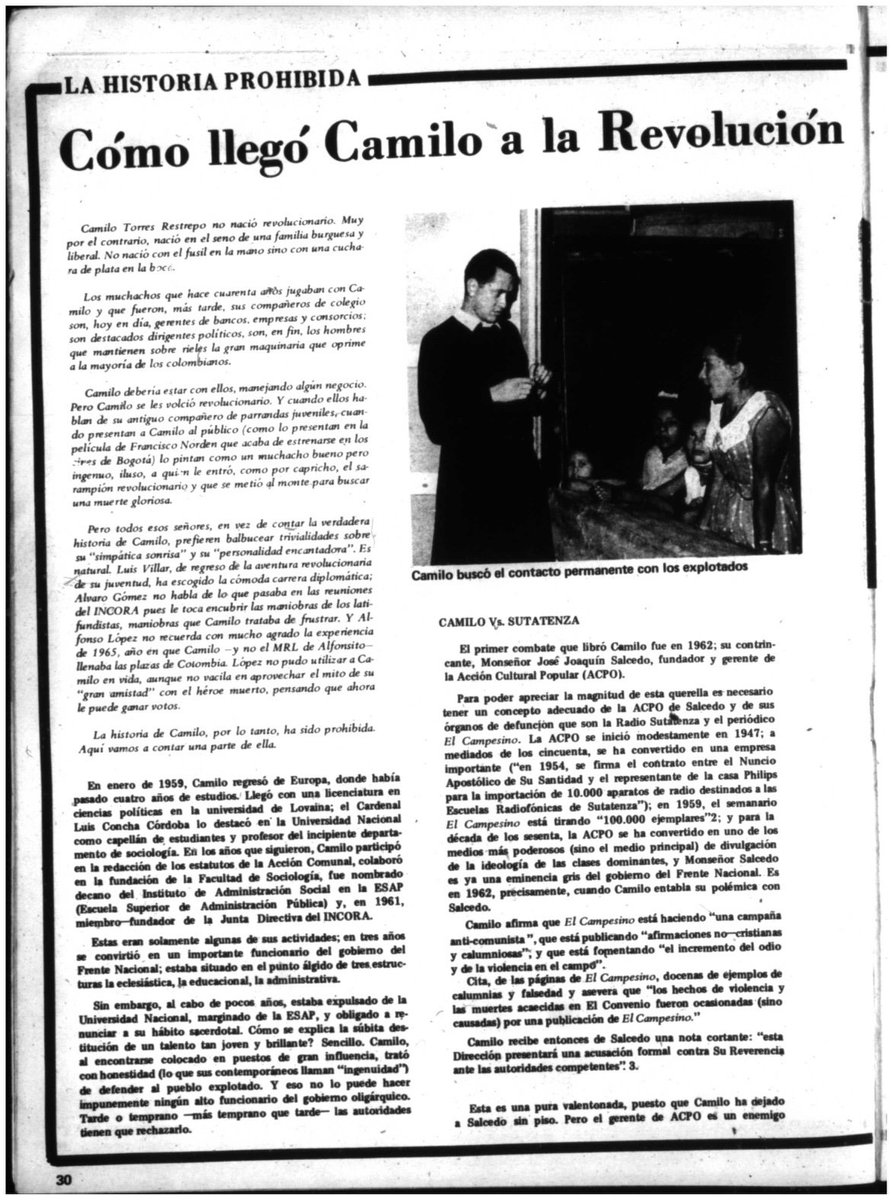
My guess is that this novel popularized the notion of Colombia’s violence as cyclical, + in so doing reinforced the reception of “La Violencia” 47/
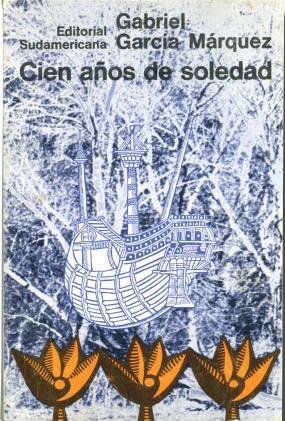
@SD_Cohen + @SaninPazC, ppl whose opinions about Colombia I so admire, feel the same way. 51/
Another Colombia is indeed possible. Our responsibility is to the cause of peace 54/*



